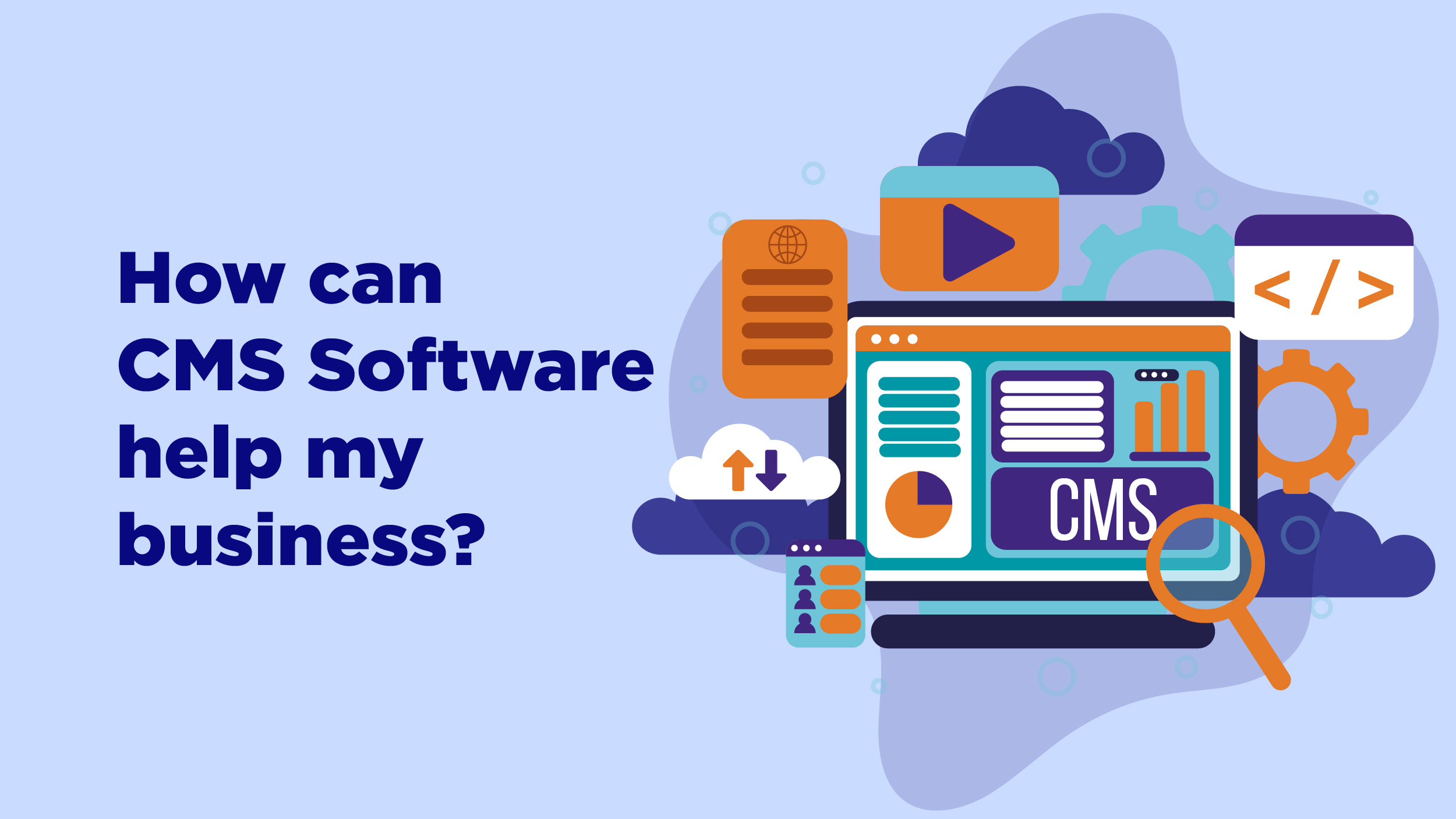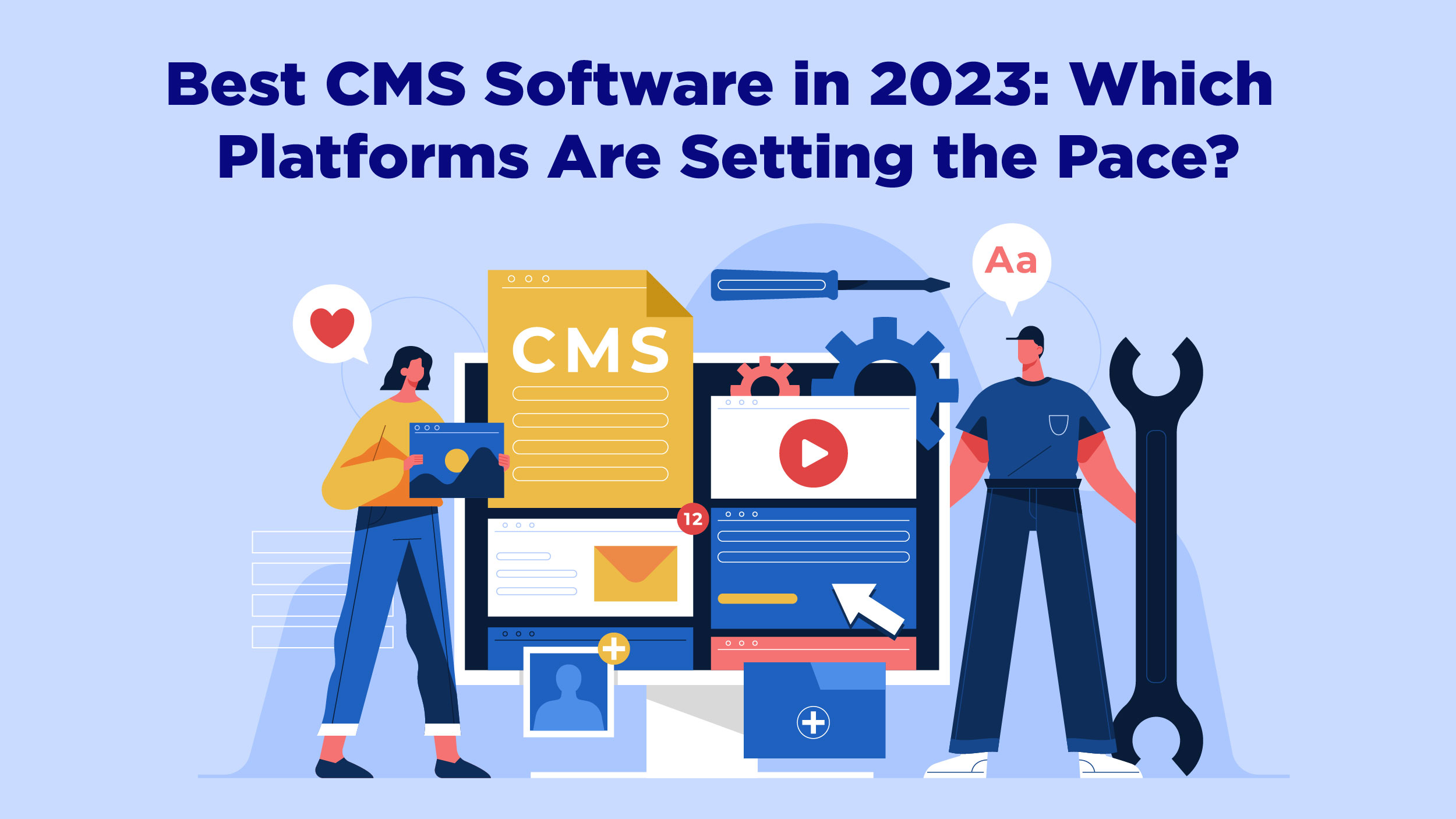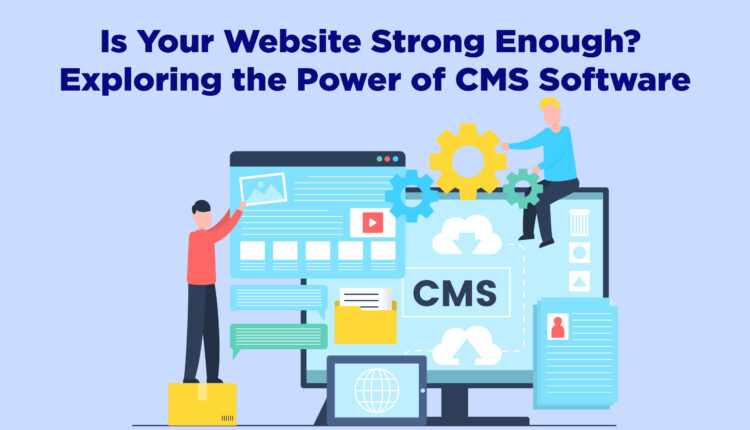Alright, when it comes to the business world, there’s a whole bunch of acronyms you’ve got to get the hang of. Some of the big ones to know are SEO, CRM, SERP, CDN, and CMS.
Now, Content Management Systems (CMS) are a pretty big deal, especially considering that over 68 million websites have been created using one. But what exactly is a CMS?
A content management system, or CMS for short, can be just the ticket if you’re looking to whip up a website efficiently, even if you’re not a tech whiz and resources are a bit tight.
So, in this article, we’re going to break down what CMS software is and lay out how it can really benefit your business. Let’s get into more details!
What is CMS Software?
Without the need for specialized knowledge or coding abilities, users can produce, manage, and change digital content on a website using CMS software, or content management system software. A user-friendly interface offered by this software makes it easier to create and update web pages, store and manage photos and other media files, and publish content to websites.
Using the CMS platform, users can effortlessly create and edit web pages, categorize information into sections or subcategories, and work together on content development and management. User management, media management, content editing tools, and search engine optimization (SEO) skills are common aspects of this software.
How can CMS Software help my business?
 There are a number of benefits of using a CMS for your company. You’ll have a better online experience, and a simpler time uploading content, and you might get access to other plugins if you let a CMS manage your website.
There are a number of benefits of using a CMS for your company. You’ll have a better online experience, and a simpler time uploading content, and you might get access to other plugins if you let a CMS manage your website.
Below are several ways in which a Content Management System (CMS) can be beneficial for your business:
● Easier management
A competent CMS enables seamless content upload and effective document organization on your website, resulting in time savings when searching for records and enhancing overall productivity for both you and your team. Numerous software even provide user-friendly mobile applications, granting you the convenience of accessing these features while on the move.
● Streamlined content publishing
Businesses now value content marketing for its traffic-boosting and conversion-driving capabilities. A CMS software streamlines content management, saving time, and increasing views. Automation features handle scheduling, approvals, and version control, essential for scalability and long-term strategy.
● Track document lifecycle
An often encountered challenge for rapidly growing startup businesses involves grappling with document storage issues. As a consequence, employees end up spending valuable time searching for documents. However, by implementing a dependable content management system (CMS), you can establish structured processes that are visible to all authorized users of the system, fostering a culture of transparency in the workplace.
Best CMS Software in 2023: Which Platforms Are Setting the Pace?
 Quality CMS platforms empower you to build captivating websites, without needing any coding experience. With a web content management system, you can easily create, edit, and publish content that benefits your business. Here are the best CMS software options in 2023 for your consideration.
Quality CMS platforms empower you to build captivating websites, without needing any coding experience. With a web content management system, you can easily create, edit, and publish content that benefits your business. Here are the best CMS software options in 2023 for your consideration.
1. WordPress: An Open-Source CMS
We can undoubtedly say that WordPress is one of the CMS platforms on this list that you are familiar with. Since its 2013 debut, it now powers 42% of all websites on the internet.
The new block editor on the website is beginner-friendly with easy drag-and-drop features for building websites without coding. WordPress offers a range of pre-made themes and supports blogs, stores, and memberships. It is SEO-friendly with options for URL, tags, and categories, and can be enhanced with plugins like RankMath for optimized content.
2. Wix: The Go-To for Beginners
Wix is a fantastic CMS software for beginners who want to make a professional-looking website quickly.
Wix’s drag-and-drop editor simplifies web design. Choose any page area to start editing. With 500+ templates and apps, it’s great for portfolios but lacks WordPress/WooCommerce flexibility.
3. Joomla: Best Suited for Complex Websites
Another outstanding free open-source CMS software for professionals seeking extensive customizability and plugins is Joomla. Although you can use it for free, you’ll still need to pay for hosting and a domain.
Joomla offers a plethora of templates and extensions and is thus ideal for creating intricate and unique projects. You can easily modify content on the platform without knowing the coding. With extensions, Joomla can also power online stores. Its open-source nature encourages community support and contributions.
4. Drupal: The Ultimate Security Solution
Another excellent choice for a developer is Drupal. It is excellent for creating a highly customized site that needs to manage a lot of data as it’s an open-source CMS software.
You can personalize your website and enhance user experience by selecting from a library of modules (similar to plugins).
For content that is customized for various audience segments, choose Drupal. It uses device data, browsing history, and geolocation to deliver tailored experiences. Thanks to its stringent code review process and strict coding standards, Drupal is known for reliability and security and has over 1,000,000 contributors globally.
5. Webflow: Ideal for Designers
Webflow, a no-code CMS for designers, offers visual and customizable site creation. Drag in HTML elements for control or use pre-built components for complex features. The intuitive editor provides a clean interface compared to more complex CMS like WordPress. Adding content is easy, and you can preview layouts for mobile and desktop. Webflow simplifies SEO without plugins, handling meta descriptions, URLs, and Open Graph Settings for optimal search optimization.
Wrapping it Up
CMS platform, encompassing versatile solutions like CMS camera software and video CMS software, plays a pivotal role in content management and distribution. When it comes to choosing the best CMS software, the decision ultimately depends on your specific requirements and use case. It is important to consider that the needs of an established e-commerce business will differ greatly from those of a photographer who simply wants to showcase their portfolio. Therefore, it is advisable to carefully evaluate and analyze the appropriate CMS for your website before finalizing one.


Comments are closed.